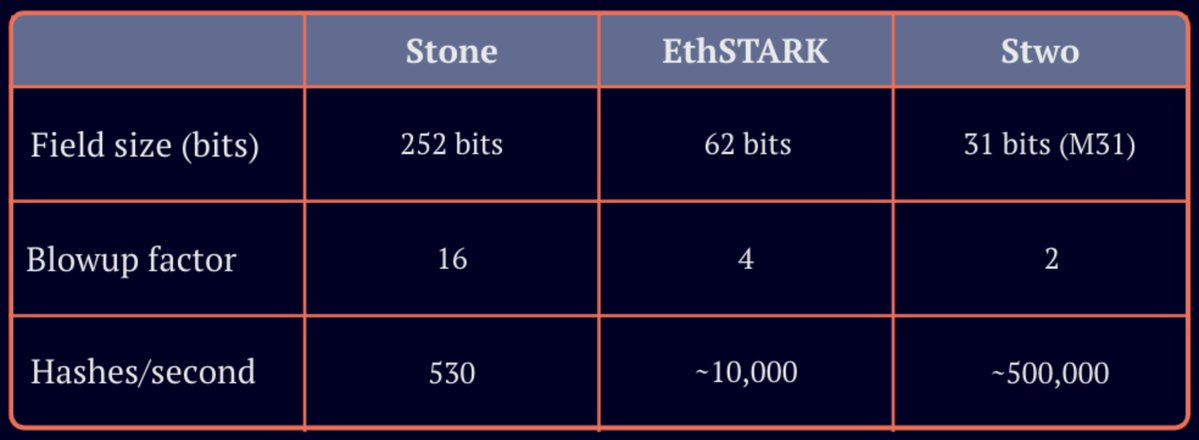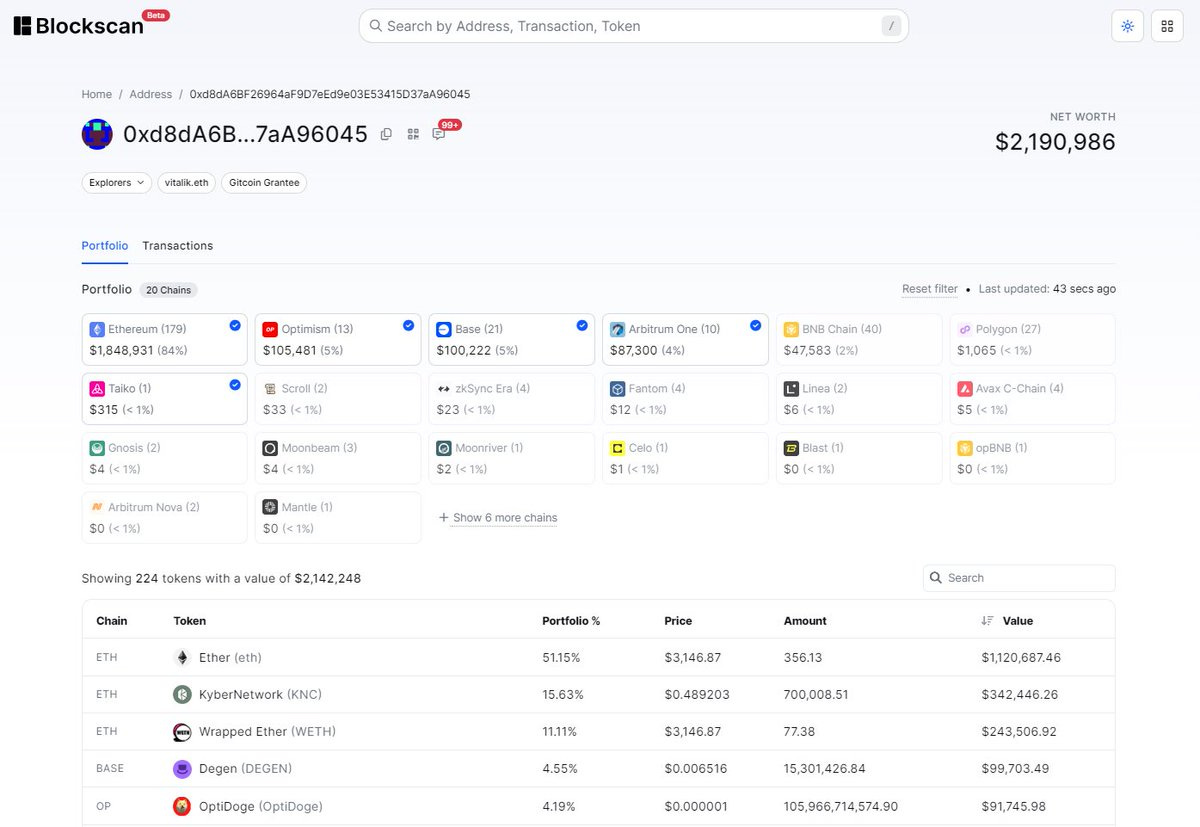Jason @0xbbbb_eth
Account Abstraction Developer
MEV Researcher
Core Contributor of Panta Rhei
Account Abstraction
co-developed with @safe
supported by @pimlicoHQ
ERC-7579 & WalletConnetct power Smart Sessions
Recently, WalletConnect announced Universal Wallets, a new AppKit feature allowing developers to integrate session keys and streamline onchain user interactions. The feature is compatible with any ERC-7579 smart wallet and is powered by Rhinestone.
MetaMask's new "Delegation Toolkit"
GitHub - MetaMask/delegation-framework: The contracts that power the Delegation Framework
Delegation Framework has made delegations
interoperable (use same Delegation Framework across different account implementation)
easy to use. (delegation to account, not key)
P256 signature utilities for WebAuthn.
Register a P256 WebAuthn credential
Sign a hash with credential
Verify a signature with a hash, pubkey + webauthn data
PBS
EIP-7732: Enshrined Proposer-Builder Separation
Before epbs
After epbs
mev-commit is P2P software that creates a network of execution providers and bidders. Bidders can broadcast bids to providers and receive commitments from them. A high throughput POA EVM chain settles the bids at the end of a block slot.
Feature
Enhancing PBS Capabilities
Execution Preconfirmations
New Privacy Primitives
Chain Abstracted and Allows Any Actor to Provide Commitments
Bid Decay Mechanism
New Relay Roles, No New Validator Sidecars
Commit-Boost is a new Ethereum validator sidecar that is focused on standardizing the last mile of communication between validators and proposer commitment protocols
rbuilder is fast. It builds mainnet blocks in sub-100ms on average, with a p50 fill time of ~20ms and p50 seal time of ~40ms (last 7d). That’s 10x faster than the Flashbots geth builder.
The next major bottleneck is the state root, which accounts for ~30% of rbuilder’s e2e latency and is significantly slower in reth than geth.
rbuilder is modular and can be extended to work with custom merging and bidding code. A next major feature will allow colocating private code with mainnet builders, so even sensitive contributions can be run in prod in the future.
Blob
Titan launched a new blob api: eth_sendBlobs
For example, Originator A sends a transaction with 6 blobs, but a higher-paying transaction with 1 blob is already in the mempool. Due to the 6-blob per block limit, Originator A's blobs won’t be posted.
If you have 6 blobs to post, you would send a transaction from the same sender with the same nonce containing different permutations of blobs. This means you would end up sending up to 6 transactions, each containing a different number of blobs:
curl -s --data '{ "jsonrpc": "2.0", "id": "1", "method": "eth_sendBlobs", "params": [{ "txs": [ "0x12...ab1", // Transaction with 1 blob "0x34...cd2", // Transaction with 2 blobs "0x56...ef3", // Transaction with 3 blobs "0x78...gh4", // Transaction with 4 blobs "0x9a...ij5", // Transaction with 5 blobs "0xbc...kl6" // Transaction with 6 blobs ] }] }' -H "Content-Type: application/json" -X POST https://rpc.titanbuilder.xyz
only 15% blob utilization
Preconfs
Epochs and slots all the way down: ways to give Ethereum users faster transaction confirmation times
Leaderless and Leader-Based Preconfirmations
Evaluate different preconf models
Compare the advantages of each
Put forward new models that creatively combine them.
Arbitrum or Optimism → base rollups
The sequencer signs the output tx feed as a soft promise and can be penalized if equivocation is detected later.
The sequencer submits batched data to a pre-confirmation proposer or pre-confirmation gateway and receives a promise that its batched data will be included.
MEV
The refund rule is open source and executed securely in TEEs.
Notice that if the block generates enough value after paying the proposer, everyone should be refunded their contribution, meaning everyone pays the minimum they need to pay to beat competition.
Pros: Users can protect themselves from toxic MEV
Cons: Nobody knows the price for a transaction if all the transactions are private
Right now private orderflow makes up 30% of Ethereum transactions, and this creates dislocation in the gas market.
Express Relay directly connects DeFi protocols to a network of established searchers.
This priority auction allows searchers to compete for priority to perform lucrative operations (such as liquidations) on integrated DeFi protocols.
Detailed Process Flow
Transaction Encryption (public key provided by the Keyper nodes)
Submission to Sequencer Contract
Decryption and Block Inclusion (Keyper nodes, Threshold)
Ensuring Fairness and Security
Contract
Foundry forge-std v1.9.0 adds 3 new cheatcodes
vm.promptSecretUnit - securely obfuscates private key entry in the terminal
vm.randomAddress - generates a random address
vm.randomUnit - generates a random number
Rollup
How to build the safest (and dumbest) Optimium
DA bridge on Ethereum needs to track the canonical chain of alt DA
dependency on alt DA majority trust and social layer
This is 50x better than ethSTARK and nearly 1000x better than Stone (the current Starknet prover) with the same hardware configuration. Yes yes yes, this is huge!
500,000 Poseidon hashes per second on an Intel i7 CPU with 4 cores
600,000 per second on a 12-core M3 Pro
Others
EIP-7727: EVM Transaction Bundles
Specifying the entity who can place the transaction in a bundle.
An optional block number that the transaction is valid in.
Differences from PBS Searcher Bundles
There is no revert protection.
Only transactions explicitly delegating to a
bundleSignercan be bundled.
Deep Diving Attestations - A quantitative analysis
Node operators' performance
Impact of big blocks
Best and worst validators
Attester/proposer timing strategies









